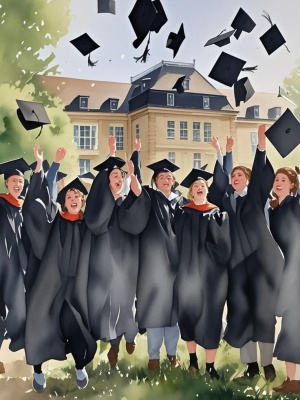The Art of Landscape Drawing with Watercolor: A Comprehensive Guide
Introduction
Landscape drawing with watercolor is a captivating art form that combines the fluidity of watercolors with the beauty of natural scenery. Whether you're a beginner or an experienced artist, mastering this technique can open up a world of creative possibilities. This guide will explore the essential techniques, common challenges, and expert tips to help you create stunning watercolor landscapes. For more inspiration, visit our gallery featuring breathtaking examples.
Essential Techniques for Watercolor Landscapes
1. Understanding Watercolor Basics
Before diving into landscape drawing with watercolor, it's crucial to grasp the fundamentals. Watercolor is a transparent medium that relies on layering and the white of the paper for highlights. Key techniques include:
- Wet-on-wet: Applying paint to wet paper for soft blends
- Wet-on-dry: Painting on dry paper for sharper edges
- Dry brush: Using minimal water for textured effects
2. Composition and Perspective
Creating depth in your watercolor landscapes requires careful composition. Consider these elements:
- Foreground: Use darker, more detailed elements
- Middle ground: Moderate detail and value
- Background: Lighter, less detailed areas
For more composition tips, check our AI painting guide which includes digital techniques that can inform traditional methods.

Common Challenges and Solutions
1. Problem: Overworking the Paper
Many artists struggle with overworking their watercolor landscapes, resulting in muddy colors. The solution lies in planning your painting and working from light to dark, allowing each layer to dry completely.
2. Problem: Controlling Water Flow
Water control is essential in landscape drawing with watercolor. Practice these techniques:
- Test your brush's water load on scrap paper
- Use different brush sizes for various effects
- Angle your paper to control paint flow
Advanced Techniques for Stunning Results
1. Creating Atmospheric Effects
Mastering atmospheric perspective can elevate your watercolor landscapes. Distant elements should appear lighter and cooler in tone, while closer objects are warmer and more detailed. This technique mimics how the atmosphere affects our perception of distance.
2. Incorporating Mixed Media
While focusing on landscape drawing with watercolor, consider combining it with other media:
- Ink for sharp details
- Gouache for opaque highlights
- Colored pencils for fine textures
For digital alternatives, explore our AI art guide which discusses hybrid approaches.
Conclusion
Landscape drawing with watercolor is a rewarding artistic pursuit that combines technical skill with creative expression. By mastering fundamental techniques, understanding composition, and practicing regularly, you can create breathtaking watercolor landscapes that capture the essence of nature. Remember that every artist develops their unique style over time - the journey is as important as the destination. For more artistic inspiration, visit our landscape scenes collection.

To further your knowledge, consider these authoritative external resources: Handprint Watercolor and Artist's Network Watercolor.